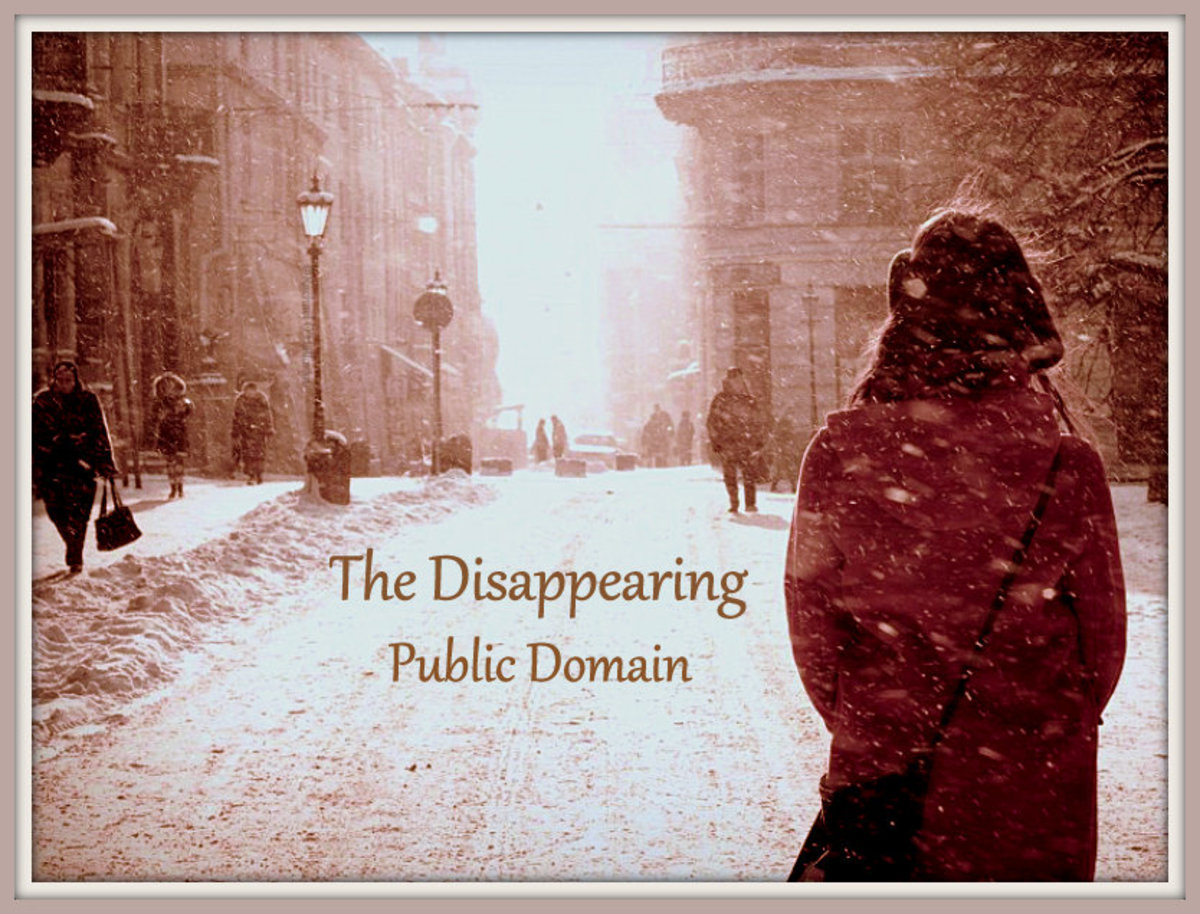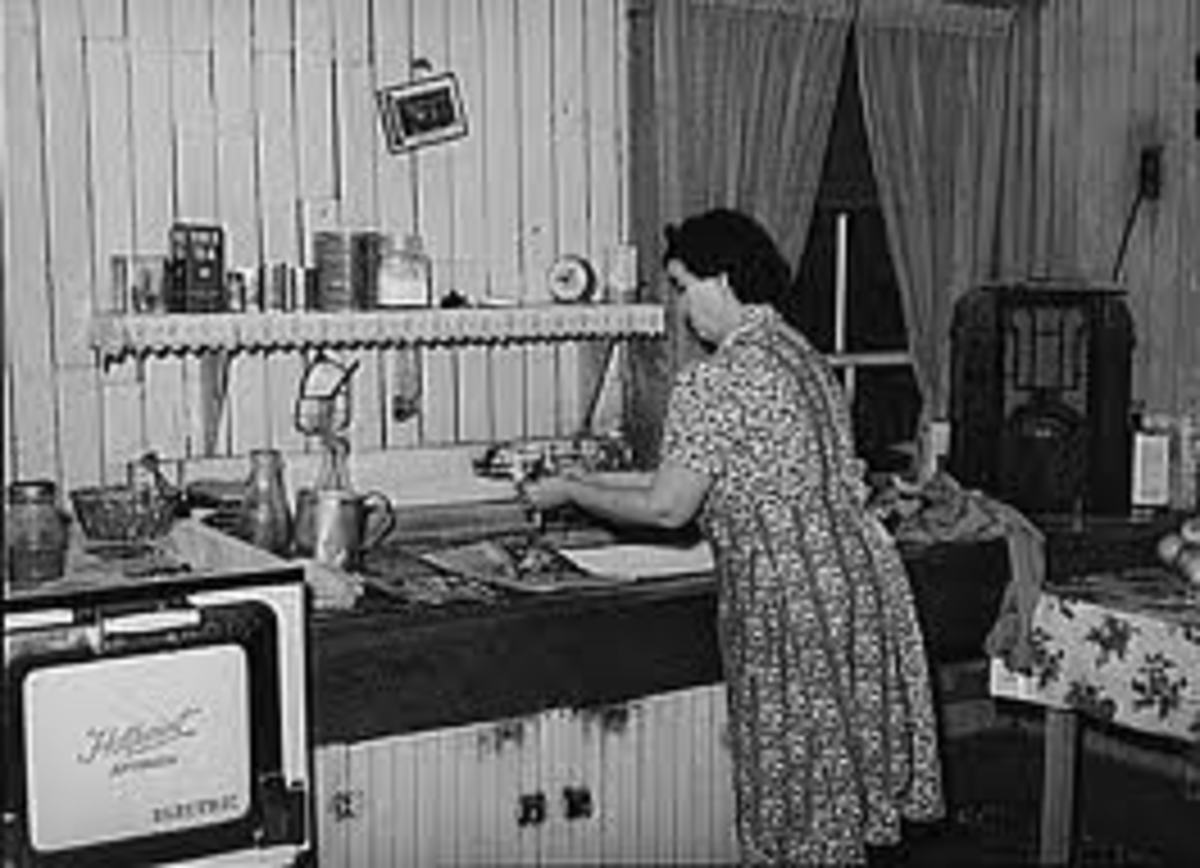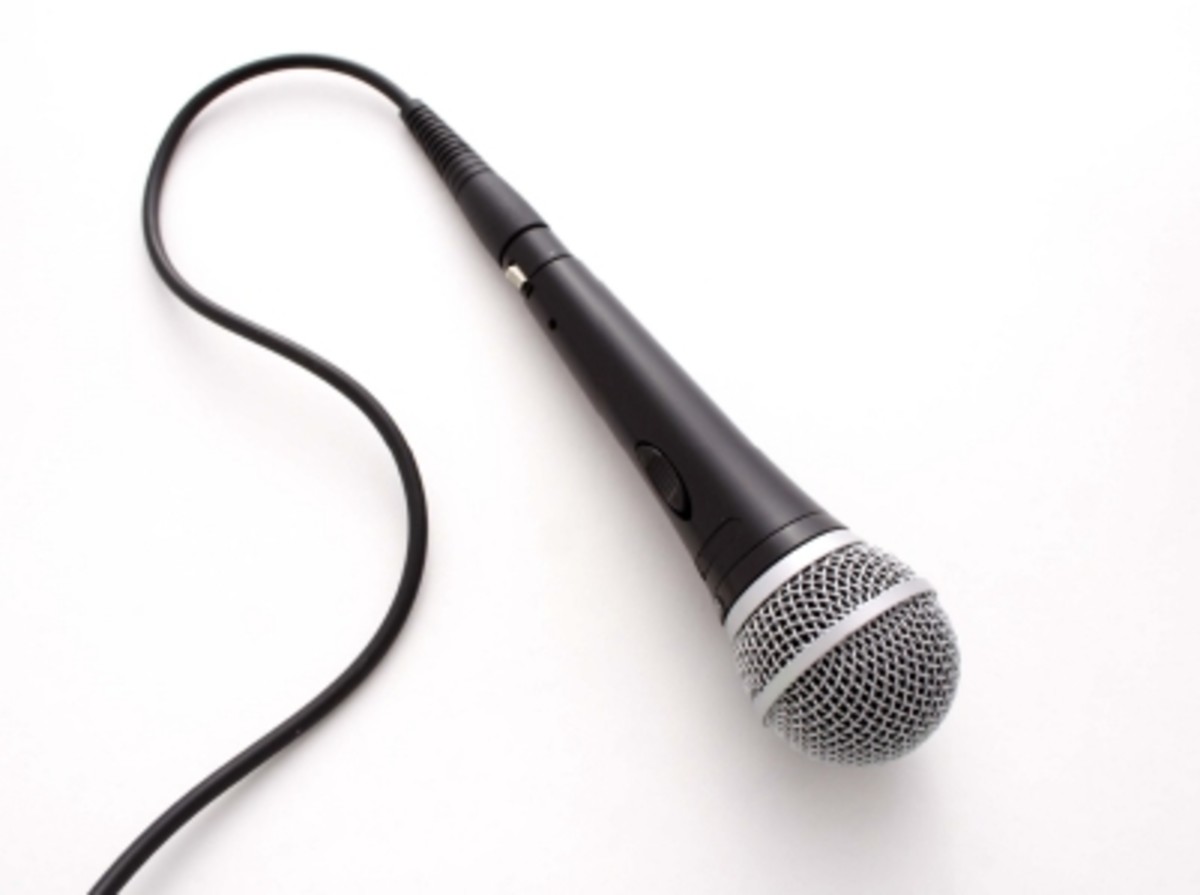Radio Spirits and the War on Old Time Radio Preservation
Copyright Mark Twain
The Internet has been a boon to culture for those who want to take advantage of it. You can go to any number of sites and read the works of literary geniuses whose work has passed into the public domain. You can read Tom Sawyer or Othello. You can read the Bible and the Federalist Papers.
Imagine for a moment that you were working your way through Tom Sawyer and suddenly the site where you reading Tom Sawyer on took the book down and said that a company had claimed to be the exclusive licensee for Tom Sawyer.
If you can imagine the absurdity and frustration of this situation, then you have a good idea the nasty surprise that greeted old time radio listeners on the Internet Archive when Radio Spirits renewed its war on grassroots collectors with its demand to remove 13 shows claiming exclusive distribution rights. The shows removed were:
1. Jack Benny
2. Phil Harris - Alice Faye
3. The Green Hornet
4. Frontier Gentleman
5. Burns & Allen
6. Edgar Bergan & Charlie McCarthy
7. Gang Busters.
8. I Was a Communist for the FBI
9. Lum and Abner
10. On Stage
11. Sam Spade
12. The Falcon
13. The Witch's Tale
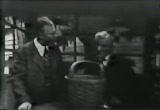
A History: Radio Spirits v. The Little Guy
This isn't the first time that Radio Spirits has gone toe-to-toe with grassroots fans. At the start of the decade, Carl Amari, the Founder of Radio Spirits went to war with grassroots old time radio fans and distributors.
Amari built the Radio Spirits business through a practice of licensing old time radio and working to acquire exclusive rights to a variety of old time radio programs. To Amari, it was a simple proposition, the shows he claimed rights to were copyrighted material:
"I know it makes me look like the bad guy," he says. "But if it's protected by copyright, you're not supposed to sell it. If you went on a Web site and sold episodes of 'MASH,' you'd get a cease-and-desist order. Why should it be any different with old-time radio, just because it's a little older?"
The key difference is that there's no one who believes that M*A*S*H is public domain and there's no reason to believe that it is. With Old Time Radio, there are many reasons to believe that it might not be. But more on that later...
Then the most remarkable thing happened after Amari left the company and Radio Spirits was sold in 2007. The war between Radio Spirits and the OTR community stopped, or at least cooled off. The one series that Radio Spirit carried that did get some attention was the Shadow, which was pulled off of the Internet Archive earlier in the decade, and Conde Nast, the owners of the Shadow have had several Shadow-based websites remove their recordings through DMCA requests.
Until this present blow up, things had been pretty quiet other than that.
Copyrights and Wrongs
There are two popular theories regarding the copyright status of old time radio shows.
The first states that they are in the public domain. In favor of this argument are several facts. The first is that radio recordings weren't subject to copyright protection until February 15, 1972 and the golden age of Radio is considered to have ended on September 30, 1962 when Yours Truly Johnny Dollar and Suspense aired their final episodes, the last of the golden age shows to go off the air.
In addition, even if the shows were copyrighted, in the golden age of radio, copyrights were good for 28 years and had to be renewed at the end of the 28 year period and enter the public domain. Because of failure to renew a copyright, many movies such as DOA and My Man Godfrey have entered the public domain and can be freely viewed and sold.
In the world of radio, wherever there have been renewals, they have been renewals of the copyrights on the script, which isn't the same thing. So, if the shows were copyrighted they've long since expired.
Also, most recordings have no copyright notice. Prior to 1989, a Copyright notice was required for a work to be under copyright protection. Because of a lack of a proper copyright notice, many movies including Night of the Living Dead have gone into the public domain for lack of a notice. Why should radio shows without a notice be any different?
However, industry advocates have their own theory:
Although sound recordings could not be copyrighted until 1972, the underlying script could be copyrighted as an "unpublished work." If producers registered copyrights and then failed to renew them, the script and the show are in the public domain. But in other cases, no one bothered to register a copyright--the vast majority of cases, Amari says. And when copyright law was revised in 1976, those unpublished works automatically gained copyright protection.
So if you copyrighted your show and the copyright expired, it's no longer any good. If the show wasn't copyrighted at all, it's still under copyright protection. Make sense?
What makes Amari's argument so odd is that he suggests that the reason the shows would be under copyright is because of the fact that the underlying script is an unpublished work. If that's the case, it wouldn't seem to matter whether the copyright was registered or not, as the script is still unpublished.
In addition, does the script being under copyright make the recordings under copyright? If so, it would seem that the folks who made Night of the Living Dead could reclaim their work from the public domain on the basis that the script was an unpublished work without a copyright notice on the movie.
Taken far enough, the two step argument that: 1) The script is an unpublished work under copyright and therefore, 2) the performance of the script is also a work under copyright, could obliterate every public domain film and television show out there, as well as wipe out several companies the size of Radio Spirit and bigger such as Alpha Video.
Public Domain Radio
Are Old Time Radio shows public domain?
In Search of a Windfall
Perhaps, the best explanation for why old time radio copyrights are so confusing is that when old time radio programs were originally produced they were, with few exceptions, intended as one time use vehicles. Reruns were extremely rare. The last episode of the 1948 Jeff Regan series, "The Man Who Lived by the Sea" featured the actors reperforming the script rather than just rerunning the September broadcast.
Radio existed as a much more theatrical medium than television. Radio shows are often referred to as "plays" with "acts" on the air. If a star became sick, the show must go on. Gerald Mohr was not available to do an episode of Philip Marlowe, so they called in William Conrad to substitute.
One would no more expect to earn money from last week's radio show, then a Broadway actor would expect to be paid this week for last week's performance.
Thus, for most shows, there was no expectation of future revenue from rebroadcasts. Thus, no need for revisions to the Copyright Act. In fact, had it been left to the people who produced the shows, most simply would not have survived to this time. The episodes we have are the result of dedicated fans buying copies of the programs, trading them at conventions, visiting yard sales, estate sales, and picking up old transcript. What we now have is the cumulation of more than 30 years of human effort to preserve a part of American culture for future generations.
This ambiguity in copyrights is telling as Radio Spirits even seems to be having trouble keeping track of which shows its claiming to have control over. For example the centerpiece of the 2001 LA Times piece cited earlier that began the big row over Old Time Radio was the show, The Life of Riley. Irving Breecher, an 87 year-old radio pioneer stated he'd renewed the copyrights on every script and called old time radio collectors and unauthorized sellers "thieves" who have been "stealing my stuff" for years. Life of Riley wasn't among the shows taken down. A 1996 article reported Radio Spirits acquiring the rights to Fibber McGee and Molly along with several of the shows that were taken down.
While its possible that the DMCA requests may keep on coming from Radio Spirits, future requests will be less effective at stopping people from getting the programs. It's set off a bit of rush on free old time radio sites as people download their favorites for fear of losing access to them forever. This was their best shot to make an impact and common sense would argue for hitting the bigger series yet. I'm sorry, but if the obscure Husband-and-wife radio drama On Stage is one of the thirteen best shows you have the rights to, you're in a weak position.
For example, Fibber McGee and Molly, which I mentioned earlier, is available in several sets from Radio Spirits' competitor, Radio Archives which sells premium quality CD sets, which doesn't quite seem possible with the ironclad rights Radio Spirits claimed to acquire 14 years ago.
This ambiguity around copyrights makes it quite unlikely that it will ever be resolved. Most people when they receive a DMCA request or a threat of one will take the shows down and wait for them to show up somewhere else online. Even the show that has produced more takedown requests than any other, The Shadow still litters the Internet and is sold and traded in MP3 format across numerous websites. People who post old time radio do so for love of the genre, and will want to avoid the pain of DMCA Counter Notices and certainly lawsuits.
For Radio Spirits, the current situation serves its needs quite well. It can take the effective position that vintage radio is not in the public domain for series in which they have claimed rights holders, but also in the public domain for series in which they haven't found rights holders to make a claim with. Thus, its the heads I win, tails you lose school of copyright protection.
How would Radio Spirits' rights hold up in court? No one knows. They would have to prove that the shows were under copyright and that the people they license the shows from have all the rights to the shows in question. The latter could be a tough order. Many of the shows that Radio Spirits claimed to have exclusive rights to such as Burns and Allen, Jack Benny, and Lum and Abner, aired on multiple networks with multiple sponsorship arrangements.
If they lose the case, then it means that their efforts have been wasted. And what if they win? They may be able to claim control of the shows they have deals for, but there's a whole lot they don't have firmly tied up, and Radio Spirits could find itself besieged with newly minted rights holders who want past royalties or who go out and sell rights to other companies.
And perhaps, more importantly, old time radio may be a business for Radio Spirits, but its not a big business. 9 years ago, Radio Spirits cleared $14 million. They may make more or less today, but it puts them nowhere near the titans of the entertainment world. Increased sales from any one or two shows really won't make that big of a difference to justify the costs of going to court.
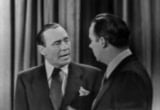
A Future Without Radio Spirits
In light of all the somewhat unique issues that Radio Spirits has brought forth, the best thing for the future of vintage radio may be if it Radio Spirits went away.
Defenders of Radio Spirits will argue that the company advances the interest of vintage radio by preserving high quality recordings and bringing new shows to market, even if they do make fewer of them available. They also have their syndicated radio, When Radio Was which they argue brings new fans to the genre, and the Sirius-XM Radio Classics Channel.
This is whistling past the graveyard. Radio Spirits has several problems in every business line.
1) When Radio Was appears on Radio Stations across America, but at times far from prime. Their Saturday and Sunday appearances on KTVA in Ventura, California are from 3-5 a.m. in the morning, and most of the rest of their timeslots aren't much better, they end up either with late night slots or weekends.
2) Sattelite Radio has an iffy future and many people have had to cancel their subscriptions in tough economic times.
3) Their Radio Classic Streaming and Downloading site costs more than a Netflix unlimited three at a time DVD subscription and comes with 20 hours of downloads andunlimited streaming for $19.95 a month. Their selection is often amazingly small. For example, in private collections, there are more than 1700 episodes of Lum and Abner circulating. On their site, they offer only a few dozen. They offer for download 95 of the more than 700 episodes of Yours Truly Johnny Dollar in circulation. Unlimited streaming is little good if the selection is too limited.
4) Radio Spirits CD collection offer little value. Their current front page selection is a 10 CD set of the Radio Sitcom, Our Miss Brooks. The set includes twenty episodes with a little less than ten hours of entertainment for $39.98 or $4+ per entertainment hour. This is ten dollars more than Radio Archives charges for its 10 hours sets which is $3.00 per entertainment hour. For price comparison to other mediums, for $20.49 you could buy I Love Lucy, The Complete First Season for $20.49 or $1.35 per entertainment hour.
If the only way that people can access vintage radio is the Radio Spirits way of late night radio broadcasts, fading technologies, and overpriced CD sets and streaming service, then only the diehards will purchase it, and diehards do eventually die. Radio Spirits current business model threatens the future of their business, and if their takedown efforts succeed, the ability of future generations to access great radio.
As for their bringing new episodes to light? They do deserve some credit for buying 11 never before heard recordings of the Shadow starring Orson Welles. As perhaps the most iconic radio shows around, a find of new episodes is gold and Radio Spirits has made the most of it by releasing the new episodes in combination with shows that have been out for years, two episodes per set.
The problem with that most shows are nowhere near as marketable. 11 Episodes of the Shadow is a big deal. 11 new Adventures of Mr. Keen, Tracer of Lost Persons? Not so much. And it'd be doubtful for the shows that they've claimed such as Burns and Allen, Lum and Abner, and Jack Benny. There's no big payoff waiting for the person who finds another episode of 99% of the shows out there. The main reward is getting another half hour with one of your favorite shows. And if you're a generous soul, you're willing to share what you find with others, provided you don't face the threat of legal action.
Radio Spirits actions are chilling to such volunteer actions. As a result of a take down notice, Rand of Rand's Esoteric OTR, who found two lost episodes of Lum and Abner, has decided to keep them to himself for now:
And, with some of what I’ve been thinking about these “Lum and Abner” discs, how can I challenge their claim if I have to rummage in an archive to find an original contract or legal trail for a particular series? I just don’t have the resources to do so.
Thus, fans miss out on two episodes, and there'll be many more. Several of the series removed from archive.org have come about through years of hard work by fans "for the love of the show." One man spent nine years working on a set one, and another spent five years on another. Four shows removed were from the Old Time Radio Researchers, a team of volunteers dedicated to radio preservation. Theaw sets took months and perhaps years to compile, as logs of shows were added in, along with information about the stars, and other ephemera.
And it should be noted that these hard-working people didn't know that Radio Spirits had some copyright hook coming in, or they wouldn't have bothered with the effort required to create the set.
Radio Spirit plays Dirty Harry with its copyright claims, as it doesn't let people know what series they claim to own and which they have no claim to, the message to the amateur researcher wanting to increase knowledge of their favorite shows is a daunting one which I record in Dirty Harryspeak:
I know what you're asking yourself. Do we own rights to that series you're wanting to research and spend painstaking hours remastering audio or not? Truth is, right off, I don't know. We could claim rights to it now, and ten years from now, totally ignore people posting it. We could discover some obscure company we bought out once claimed rights to it. But we have a DMCA notice which can make your ISP blow your content clean off of your website, so the question you have to ask yourself is 'Do you feel lucky?' Well do you, punk?
Given that situation, many will choose not to spend their times on an effort that could end in frustration or they'll collect the shows but keep their finds to themselves. The loser will be the American public, who will miss out on part of our American heritage.
Perhaps, the best thing that people can do for the future of radio preservation is not to buy from Radio Spirits, but to choose another vendor. The world of radio collecting can do without Radio Spirit, but it can't do involved volunteers.
Keeping the Spirit Alive
While it's somewhat viscerally appealing to call for the end of Radio Spirits, it's not the kindest note to end on, and it might not happen. So, rather I'll end with this. Having identified the problem with Radio Spirit's business model, how might they fix it? I'm not a business professional, but this is a fan's perspective.
I write this part as someone who has bought t sets from Radio Spirits in the past year. Among them, I bought two Superman sets for my father-in-law. Now, I could have burned CDs with all the episodes I bought from Radio Spirit and then some. So why did I go with Radio Spirits?:
1) Sound Quality
Radio Spirits CDs are professionally mastered which provides an advantage over the homemade audio CDs you'll often find on the Internet.
2) Extras and Packaging:
Radio Spirits Superman Set has an appealing look to it. It also included a booklet on the Man of Steel. That's a nice touch, and makes it a nice present as opposed to a cheap one.
These are the big strengths of Radio Spirits, along with the ability to have a physical product that can be sold at places like Cracker Barrel.
However, Radio Spirits' core customer base is not the casual radio listener who just wants to hear the shows, but the hardcore superfans of the genre. Some of the people who are mad at Radio Spirit's pushyness will never do anything but listen to free radio shows. However, Radio Spirits could also offend its fan base with attacks, particularly on high quality mp3s of comedies. People associate radio with better days in American history. Acting like a typical corporate bully damages their image and undermines the necessary corporate image of the company.
Their fans want extras and added value, more than just the shows themselves. Radio Spirits provides some of that, but it could provide more. If you want me to buy an expensive Lum and Abner set, throw in a brief DVD of what modern day Pine Ridge looks like or an interview with Chester Lauck, Jr. about his dad (i.e. the Lum of Lum and Abner.) or have some well-know comedians offering their thoughts on Lum and Abner.
Another thing to consider is doing professional recreation. Here, Radio Spirits can take a page, ironically from its past owner. After leaving, Radio Spirits, Carl Amari embarked on a journey into the Twilight Zone, as he contracted with the owners of the series to adapt the TV series to radio, and got some modern day stars to recreate the shows. If I really had a deal with Conde Nash to distribute the Shadow radio show, I wouldn't waste my time going after people who have 32kbps copies of the Shadow on their website.
Rather, I'd take advantage of public demand for the Shadow coupled with the high number of lost episodes. According to one site, there are more than 500 lost episodes of the Shadow. Some of these must be available or at the very least, the stories in the Shadow magazine they were based on. Maurice LaMarche is a voice actor well-known for his Orson Welles voice. Could one imagine getting LaMarche to re-enact lost scripts of the Shadow, along with a few other actors. It'd be great fun, and it would capture the interests of hard core old time radio fans and casual fans alike.
It's simple, if Radio Spirits wants to survive, it'll make its focus adding effort and building. If it wants to decline, it can continue to be destructive, by damaging their reptuation with fans, and making it harder for new people to discover the shows.





